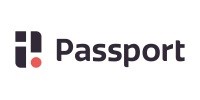Passport: Leveraging Parking and Mobility Data Through One Powerful Platform

How Cities Can Centralize Parking Data to Make Smarter Economic Decisions
Congestion, safety, revenue, sustainability and equitable access are all issues cities want to address, but are in dire need of better parking and mobility data to make well-informed decisions on those issues. The great news is that there are more and more resources available than ever before that can help capture this information. However, more doesn’t always mean better, especially when the data is dispersed across numerous tools, systems and disconnected reports.
By centralizing all parking, enforcement, permit, payment and other mobility data to one platform, cities will have real-time insights into what’s happening on their streets and be able to take quick actions that will have lasting impacts on the communities they serve.
One Platform Decreases Complexities
There are several digital enforcement and permitting solutions from which cities can choose, as well as mobile pay parking applications and payment processors. Each solution has its own unique features that can be built to fit specific needs for their clients, coupled with reporting capabilities to extract data. The optimal solution, however, is to select a platform that can centralize these siloed offerings into a single source of truth so cities can leverage the aggregated data to gain meaningful insights about their mobility operations.
With one platform, cities eliminate the time-consuming task of logging in to multiple systems and running separate reports to cross reference with data from disconnected sources. Passport’s platform brings these solutions together in one place, ultimately saving cities time and money. “With Passport’s platform in place, we’ve established our digital infrastructure that truly future-proofs our operation,” says Wady Burgos, Parking and Transportation Demand Management Coordinator for the City of Westminster, Colorado. “The data we’re extracting is incredibly useful, and it’s all in real-time, so we have eliminated a ton of back and forth with our customers and have made significant improvements in areas we weren’t operating as efficiently as we could have been.”
Platform vs. a Data Hub
To be clear, aggregating data to view everything in one place solves the first piece of the puzzle. Cities also need the tools and insights to take quick action based on what that data shows.
This means the platform not only needs to aggregate relevant information about curb activity, but also have the tools embedded to allow cities to manage rates, rules and logic in the same place. Passport’s platform does just that: it’s software that makes its products and data offerings available to other entities via public APIs to integrate, build on and respond to in real time*.
By leveraging a single platform to both ingest and manage parking and mobility data, cities can also offer multiple payment options for parking without introducing new complexities to their operation. Transaction, session and enforcement data all flows into the same system. The sophistication of the platform’s rate engine, combined with the ability to process payments seamlessly across multiple providers, means a city does not need to engage with multiple third parties in order to dynamically change rates across all of their payment providers – all changes can be made through Passport’s platform.
Benefits to Enabling Multiple Payment Options via One Platform
Revenue: Mobile parking transactions through Passport’s applications typically generate 25%-50% more revenue than meter transactions do at lower operating costs for the city. App users typically pay the maximum amount of time for peace of mind and have the flexibility to extend sessions remotely, which increases the amount they pay, which increases revenue earned for a city.
Convenience: Using one platform to manage multiple providers is not only convenient for the city, but for parkers as well. Consumers want choices. By offering more payment options, parkers can choose which application works best for them or select what they already have on their phones. Passport works with all providers to ensure a seamless parking experience through consistent signage and communications tactics across all providers. This ultimately leads to increased willingness to pay and overall customer satisfaction.
Equity: Through Passport’s platform, a city can offer parking through third party applications that are used by underserved communities, such as the mobility disabled, the unbanked, those without smartphones and non-english speakers. With all parking and mobility data in one place, cities will have a holistic view of their curbside activities and learn from their data, giving them the ability to provide more equitable access to payment plans and easily adjust rates in less-affluent communities.
*Passport maintains the same data standards for all data collected regardless of the source.
About Passport
Passport is a transportation software and payments company that builds technology to more efficiently manage streets and sidewalks. Based in Charlotte, North Carolina, Passport is trusted by more than 800 cities, universities and agencies, including Chicago, Toronto, Los Angeles, and Miami. Passport’s digital platform helps cities manage parking and mobility infrastructure, creating more livable, equitable communities. One of the fastest-growing companies on the Inc. 5000 and Deloitte Technology Fast 500 lists, Passport was also named to Fast Company’s World’s Most Innovative Companies for 2020.








Comments
There are no comments yet for this item
Join the discussion